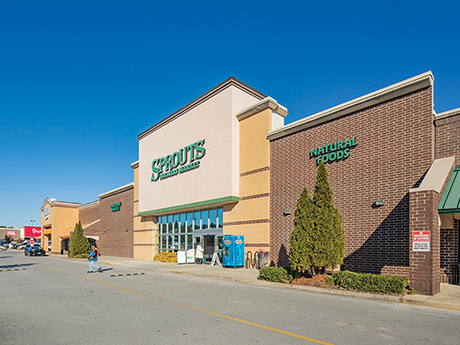Like many of the markets within the Sun Belt, Birmingham’s economy remained relatively resilient through the emergence of the COVID-19 pandemic. Despite its share of small business and restaurant closures, leasing activity is back to par, and owners continue to see steadily rising rental rates — up 3.1 percent over the last 12 months — as tenant demand continues to be robust.
Retail absorption over the last 12 months is a healthy 400,000 square feet compared to -510,000 square feet a year ago, which is a phenomenal 909,000-square-foot change just 18 months out from the emergence of the Coronavirus and effective shutdown of the U.S. economy.
As Americans return to whatever the new normal is deemed to be and retail conditions continue to rebound, Birmingham is poised and ready to stake its claim in the South’s hierarchy of bourgeoning retail markets.
Over the course of retail’s revival during the last 12 to 15 months, development has picked up throughout the Birmingham MSA, fueled primarily by build-to-suit projects for established chains in rapidly expanding suburban markets like Hoover. Stadium Trace Village, a master-planned, mixed-use development at Interstate 459 and Ala. Highway 150, has been one of the most recent projects to deliver within the MSA.
While part of the project, which was built by MAP Development, traded last year for $13.9 million, more additions are on the way in the form of a national hotel chain and 1,000-seat amphitheater. Retailers and restaurants at the site, which include Aldi, Chipotle, LongHorn and Big Whiskey’s, have reported excellent sales despite the pandemic.
In Gardendale, across from the Publix and Walmart at Interstate 65 and Fieldstown Road, a new development is underway, spearheaded by Preferred Growth Properties and purported to include several national restaurant chains. On the northeast side of Birmingham, Trussville is set for an extensive downtown revitalization with a new entertainment district, restaurants, retail and potentially a brewery.
And at Highways 119 and 280, multifamily and retail development remains extremely active, surrounding Publix at Tattersall Park.
In the affluent enclave of Mountain Brook, Phase II of popular mixed-use development Lane Parke is nearing completion. Already home to some of Birmingham’s most frequented boutiques and dining, Phase II will welcome Jeni’s Splendid Ice Cream, Ignite Cycle and several other tenants that have yet to be announced.
Over the last several years, the majority of Birmingham’s development has and continues to center around its urban core, which is home to the city’s largest employer, the University of Alabama at Birmingham (UAB) and the UAB Medical system. Over 4,000 apartment and condominiums have been constructed along with iconic buildings like 20 Midtown, which houses the downtown area’s only Publix.
Dovetailing off the success of 20 Midtown, development continues to spring up along the adjacent Rotary Trail, highlighted by the redevelopment of the Powell Steam Plant site, which just announced the addition of a 50,000-square-foot Alamo Drafthouse Cinema with another 36,000 square feet available for dining and retail.
Entertainment and dining continue to drive development in downtown Birmingham, hoping to accommodate the influx of students and young talent (more than 23,000 employees) associated with UAB University Hospital, the UAB Women and Infants Center, Children’s International and Proton International at UAB, which is the state’s first proton therapy center.
The Birmingham investment sales marketplace has seen significant activity in the first quarter, with the recent release of DRA Advisors and DLC Management’s Brook Highland Plaza to market. The massive power lifestyle shopping center is home to Lowe’s Home Improvement, Best Buy, Burlington, Petco, Sprouts Farmers Market, HomeGoods and Ulta Beauty, among others.
Atlanta-based Branch Properties is also currently marketing Inverness Corners, a shopping center anchored by Winn-Dixie and Kohl’s. Given the overall lack of supply and the perhaps unprecedented abundance of private capital chasing retail product throughout the Sun Belt, Birmingham has seen investor demand spill over from top markets like Atlanta, Nashville, Raleigh, Tampa and Charlotte, as buyers clamor for limited opportunities and cap rates continue to compress in core markets.
Even last year, Birmingham saw several notable transactions, including the sale of Publix-anchored Lakeshore Pavilion for $21.7 million, the Publix-anchored Shops at Tattersall Park for $18.3 million, GBT Realty’s Sprouts-anchored Crossings of Hoover for $10.5 million and Homestead Village — anchored by Aldi, HomeGoods, Ulta Beauty and Petco — for $25.5 million.
As private equity continues to move from less business-friendly regions of the United States into the Southeast, and investors from industrial and multifamily sectors allocate more money into retail, markets like Birmingham, Chattanooga, Huntsville and Greenville are uniquely positioned to benefit, potentially like never before.
— By Pierce Mayson, Managing Principal, Investment Properties Group, SRS Real Estate Partners. This article was originally published in the March 2022 issue of Southeast Real Estate Business.



